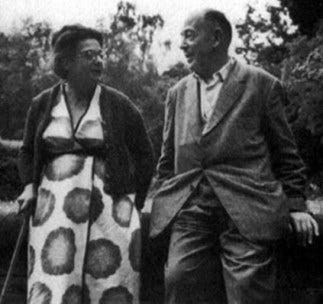
Jack and Joy
St. Augustine wrote in the fourth century that the first thing that overcame man would be the last thing he will overcome. Augustine referred here to pride. Pride is that infelicitous malady that at the moment we think we don’t have it, we do. It is so wrapped up with our humanity that we cannot escape it. We may control it, but before we know it, we are overcome by it.
Indeed it was pride that led Eve to eat of the fruit. She pictured herself as a goddess ruling Eden. It was also Adam’s pride that kept him from interfering with Eve’s pride, for Adam thought he too could become god.
Our forefather plunged us into this estate wherein we pride ourselves for being proud. C.S. Lewis echoes Augustine when he writes:
According to Christian teachers, the essential vice, the utmost evil, is Pride.[1]
Our pride conflicts with other people’s pride and in the end we are caught in that vicious cycle. When we get annoyed with others because they are proud or when we are not the center of attention, or someone is praised, but us, we are back to that misery.
C.S. Lewis comments:
If anyone would like to acquire humility, I can, I think, tell him the first step. The first step is to realize that one is proud. And a biggish step, too. At least, nothing whatever can be done before it. If you think you are not conceited, it means you are very conceited indeed.[2]
No one is immune to such corruption. To firstly admit pride is to advance against this great evil. For though the Lord is high, he regards the lowly, but the haughty he knows from afar (Psalm 138:6).
[1] Mere Christianity, pg. 109.
[2] Pg. 114.
The post C.S. Lewis, Mere Christianity: Analysis and Application Part XII, Lewis on Pride appeared first on Resurrectio et Vita.


